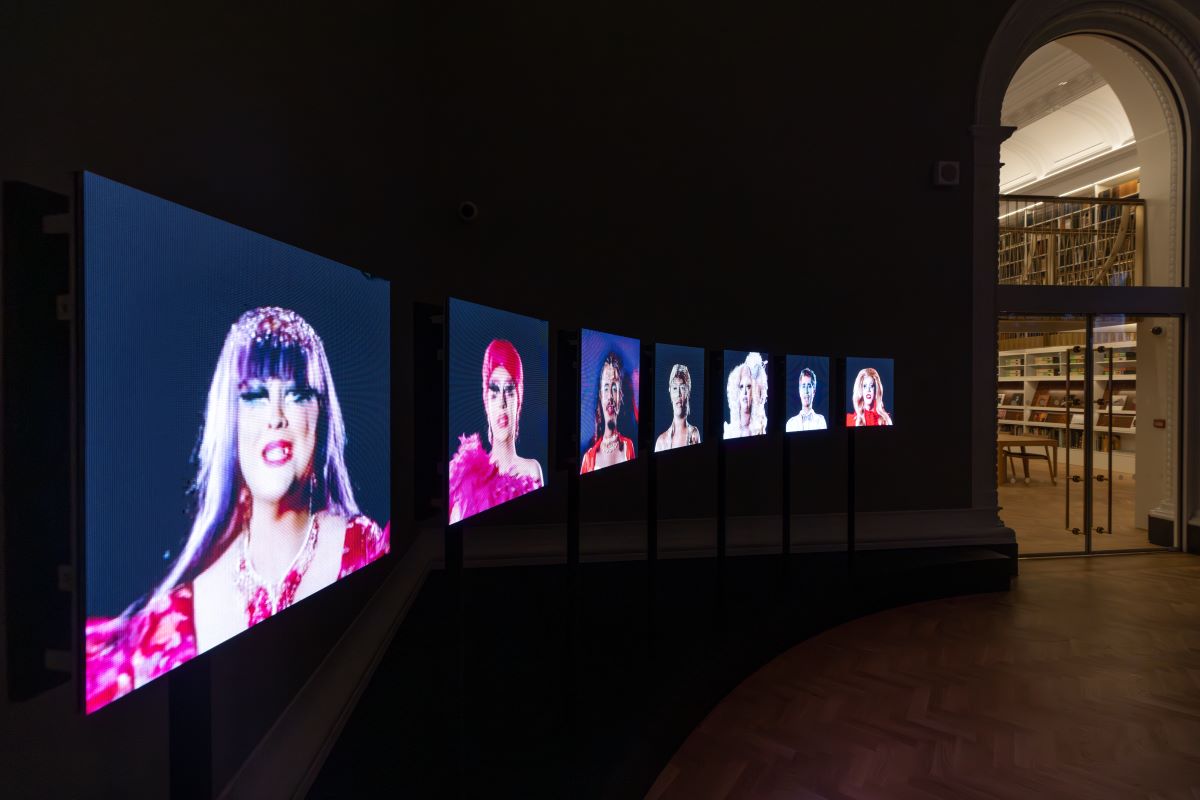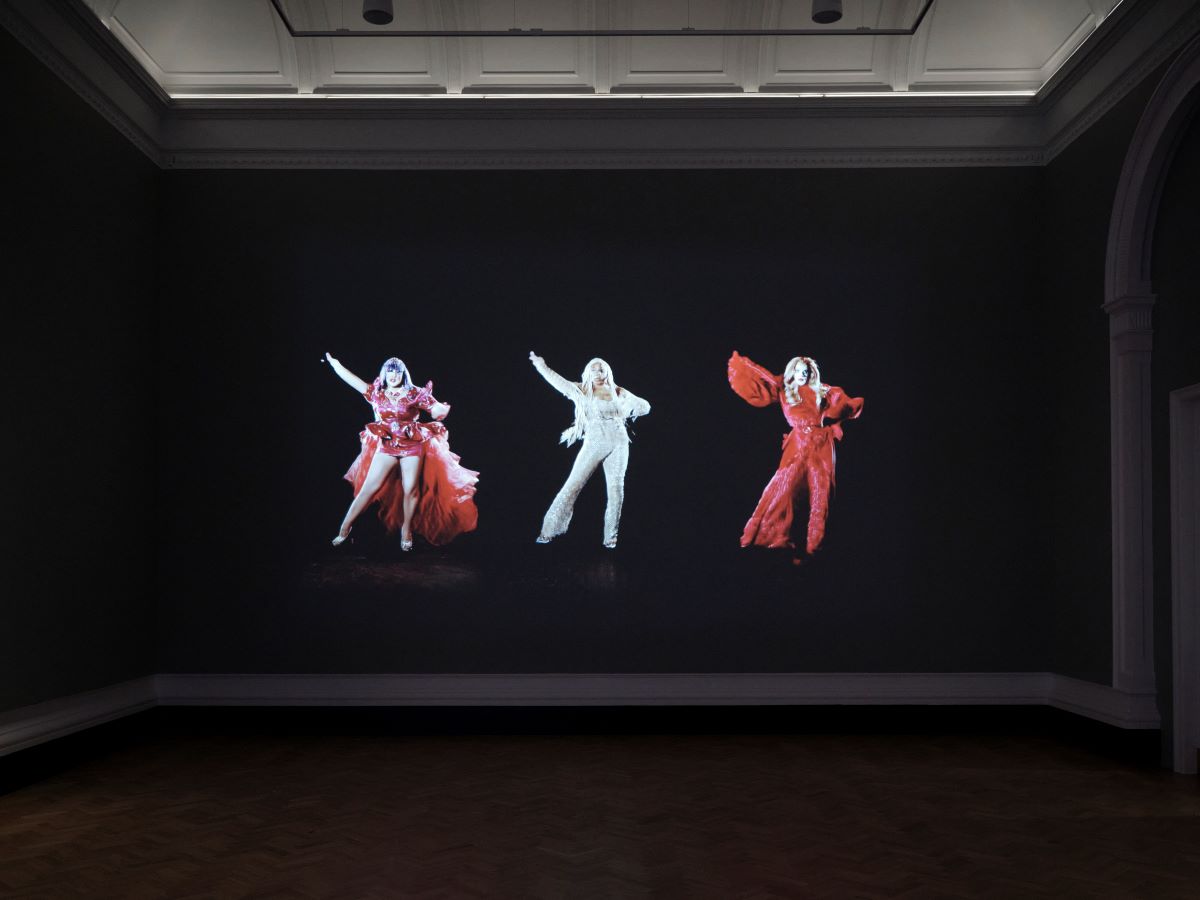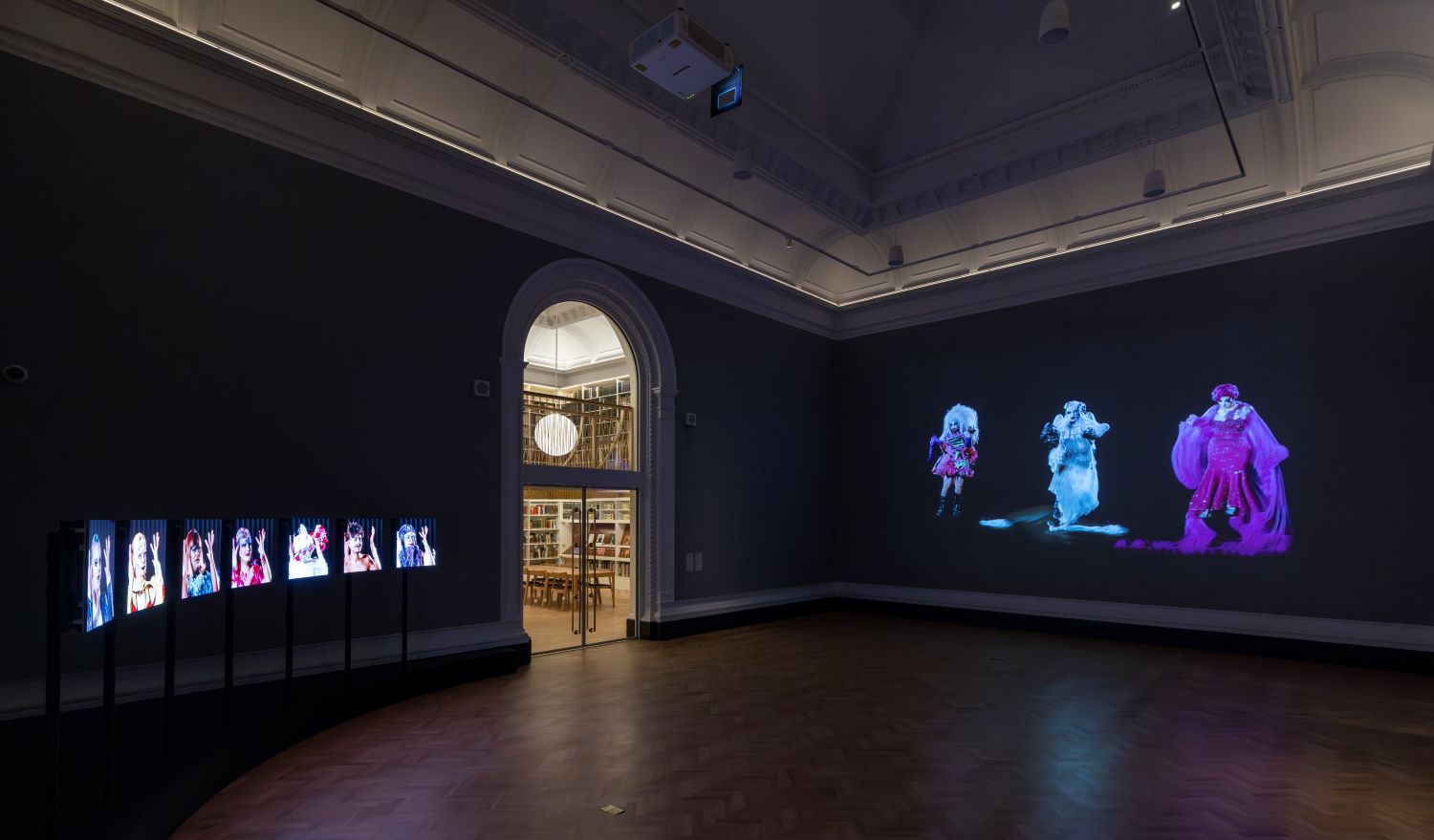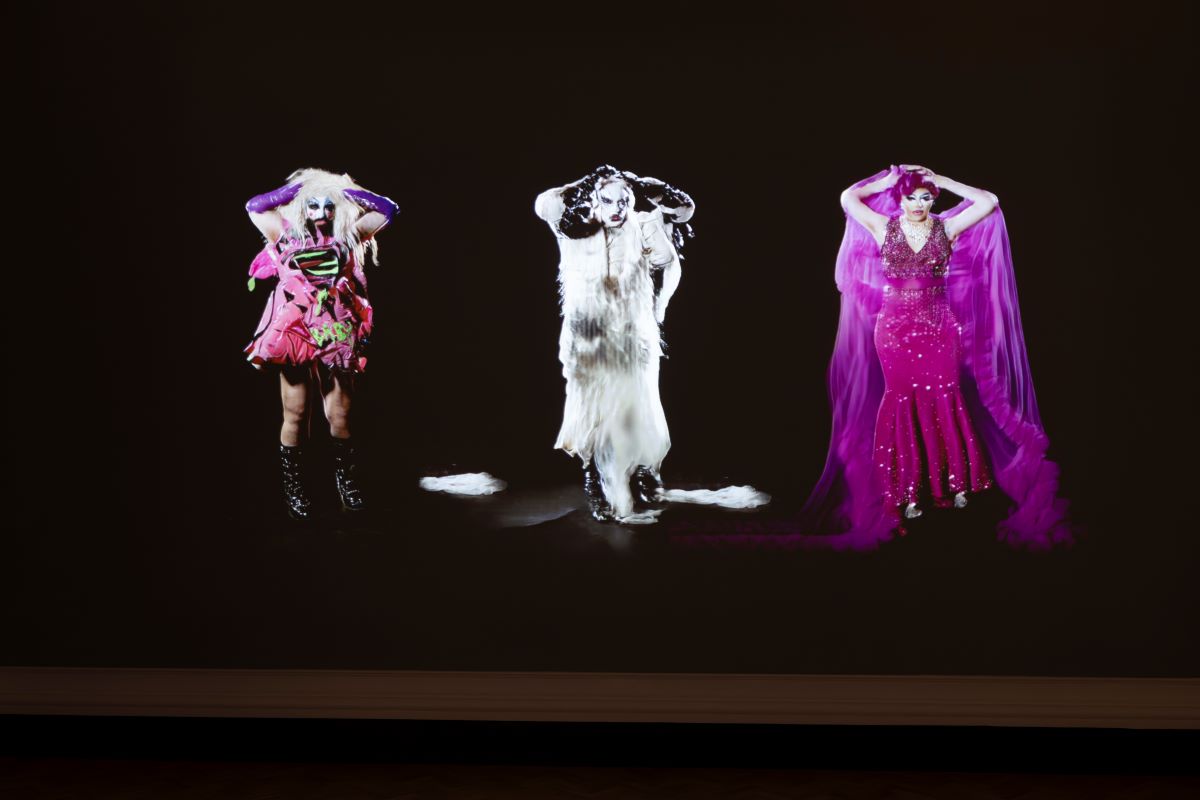All images: installations of The Zizi Show, 2020, Jake Elwes © Victoria and Albert Museum, London
As The Zizi Show brings deep fake drag queens to the V&A, its creator talks to BJP about gender nonconformity, tech bias, and queer resistance
A drag queen and their deepfake doppelganger are currently lipsyncing to Beyoncé and Pink at the V&A. In fact, the museum’s new Photography Centre features not just one, but ten drag queen deepfakes, each starring in artist and coder Jake Elwes’ installation The Zizi Show. These doppelgangers pulsate to vaguely recognisable beats in an otherwise dark space, so brightly lit that their auras (and voices) spill into the neighbouring rooms. Elwes takes a kooky conceit – whether you can train a neural network on a drag queen – and turns it into something engaging and uncanny.
“A lot of people who use AI do try to intentionally mystify it, making these grand claims around the agency of the machine,” Elwes says. “Part of my role as an artist is also demystifying this technology.”
Elwes finds a focal point for something different instead, exploring the potential to use AI and machine learning for aesthetic work. In Machine Learning Porn (2016) they used a neural network of pornographic images to reverse-engineer blurry images, for example, gesturing towards the erotic despite containing nothing sexual.
Elwes originally started working with this technology in 2017, when they were graduating from UCL’s Slade School of Art. Back then they were more interested in the metaphysical elements of this form – in whether these tools could restrict the agency of artists or their autonomy. But gradually Elwes “began to find those questions quite restricting,” they explain.
At around the same time, a glut of research began to come out investigating bias in AI. It revealed how all-too-human prejudices were replicated by the technologies, showing, for example, how systems trained predominantly on white faces were unable to identify people of colour. Simultaneously, Elwes’ partner, an academic who also researches queer spaces and performance, was running a drag venue in North London. “I realised that drag could be a really interesting way of exploring those biases,” Elwes says. “It’s an ultimate expression of gender nonconformity.”


That insight led to projects such as Queering the Dataset (2019), a drag-infused work which took a popular generative adversarial network (GAN) and added publicly available images of gender fluid faces. The result pushes the conception of what a ‘normal’ face could be in radical new directions. In The Zizi Project (ongoing since 2019) Elwes produces work around drag performance with the help of deepfake technology. Essentially, they create digital doppelgangers of 21 drag-performer collaborators.
These real-world collaborators are actively involved in the choreographic process: lip-syncing, doing the splits, performing and preening for the camera, and are paid each time the work is publicly shown. Elements of the project are self-referential, drawing on the lineage of drag cabarets and queer performance to produce a series of interactive apps, videos and installations. But the end result complicates what AI can be used for.
Deepfake technology is often associated with revenge porn and disinformation, and these connotations were integral to Elwes’ decision to explore it. “With those large diffusion models, artists using them may not necessarily always think critically about where that dataset is coming from,” they say. “Who owns them, why are they building them, and who are these datasets serving? A lot of my earlier works were about appropriating pre-existing datasets. With this piece [The Zizi Show], I want to try and think about how we can reclaim this tool. How do we create our own datasets, our own systems?”
In The Zizi Show, the glitchiness of the constantly shapeshifting deep fakes is both unnerving and eye-catching, and quite deliberately so. Elwes trained the neural networks on the movements and mechanisms of individual performers, but in the final installation sometimes mixed the deepfake performers, producing subtly buggy moments that underscore the system’s limitations. “You can find a kind of poetry, and the politics, that comes out of these systems, especially when they break down,” they add. “It reveals the conceits of the AI.”

“This is about a vision for my queer community too”
Next Elwes plans to do a live show with Zizi and Me, a tongue-in-cheek mini show with a meta-narrative on whether AI can replace humans. They’re also opening their first solo exhibition at London’s Gazelli Art House, including The Zizi Project along with other works. But ultimately, they want their works to do more than just entertain. “This is about a vision for my queer community too,” Elwes says.
“In [the US] Congress, they’re talking about dystopias when it comes to AI and safety. I have friends who are drag performers who have fascists picketing their shows. It’s a poignant moment for both of these things. I want to present an alternative, this deep fake drag utopia.”
Jake Elwes, The Zizi Show, is at the Victoria and Albert Museum, London, until 20 April 2024. The V&A’s new Photography Centre is open now

